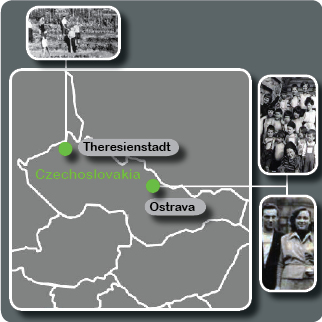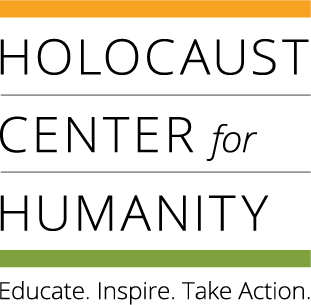Survivor Voices
“I grew up celebrating Passover and Christmas. I knew I was Jewish but religion was not a central part of my life. When Germany invaded Czechoslovakia, my religion came to define me.” – Frieda Soury
In 1943, at the age of 14, Frieda was deported to Theresienstadt, a concentration camp in her native country of Czechoslovakia. Frieda was designated a “mischling,” meaning half-Jewish: Frieda’s mother was not Jewish, but her father was. Frieda was assigned to a room with more than 20 other girls. She remembers that the Jewish girls in her room came and went (later she learned they were deported to Auschwitz or other camps) while she and the other mischling stayed as inmates. Frieda worked on the camp’s farm, planting, tilling, harvesting, and moving rocks. While back-breaking labor, this afforded her the opportunity to occasionally steal an extra piece of food. Of the 140,000 people sent to Theresienstadt, 15,000 were children, only 1,500 of whom survived the war.
Theresienstadt was liberated by the Russians in May 1945. Upon being freed, Frieda’s father acquired transportation for his family and other children from the same hometown and brought them all back to Ostrava. When she was 18, Frieda went to Israel where she met her husband Aaron. They had three children and then immigrated to the United States. Frieda is a member of the Holocaust Center’s speakers bureau.
Stories of Local Survivors - Frieda
"With My Own Eyes" Exhibit Passport - Frieda
Map

Video Testimony
Video 1 – “My dog”
Transcript 1 [PDF]
Video 2 – “14 years old”
Transcript 2 [PDF]
Video 3 – “My Mother’s Visit”
Transcript 3 [PDF]
